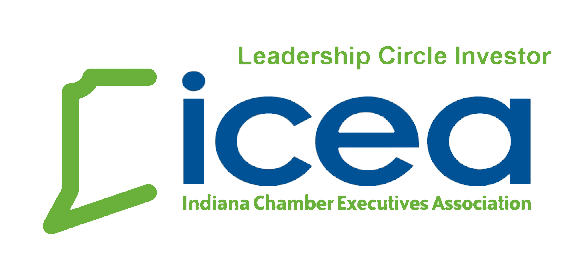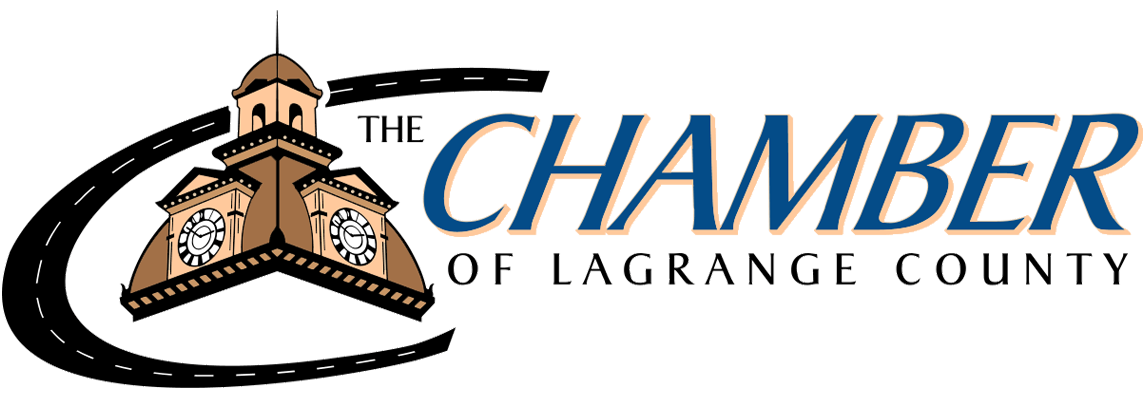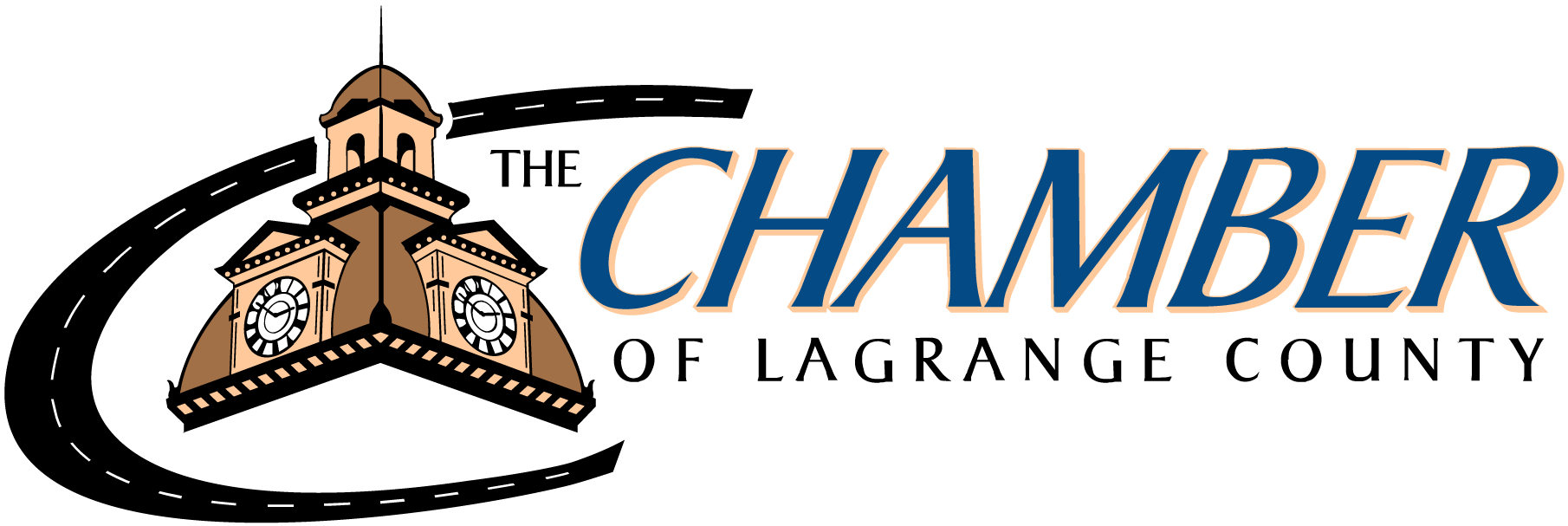By Regional Chamber of Northeast Indiana
•
March 3, 2025
First Half of the 2025 Legislative Session We have officially completed the first half of the 2025 Indiana Legislative Session! All legislation has either been passed on a third reading vote in its chamber of origin or is now considered to be dead and no longer eligible for passage. For those keeping tabs at home, the House passed 178 bills and 1 joint resolution while the Senate passed 156 bills and 2 joint resolutions (for an overall 27% pass rate). Legislators have returned to their districts for a week of rest and will return on Monday, March 3 rd to continue the legislative process. Once the bills have switched chambers, legislators in the receiving chamber act as “sponsors” (rather than authors) for legislation arriving from the other chamber. The sponsor acts on behalf of the author to get the legislation passed by their chamber. Below, you’ll find a recap of some of the major bills that saw movement in the first half of this session. Senate Republican Agenda On the first day of session, Indiana Senate Republicans revealed an agenda that prioritized property tax reform, restraining Medicaid costs, lowering health care costs, responsible management of water resources and fiscal integrity and contract accountability. These priorities were filed as Senate Bills 1 – 5. SB 1, Property tax relief (Sen. Travis Holdman R-Markle) is an extensive, 91-page bill that seeks to reform property taxes. In its current form, SB 1 will allow counties to create a program that lets eligible homeowners defer up to $10,000 in property taxes. It also modifies property tax growth limits, adjusts tax deductions for seniors, veterans and expands a tax credit for first time homebuyers. Additionally, it changes how referendums on tax increases can be placed on ballots, restricts bond issuances, and establishes a property tax portal for taxpayers to compare potential tax changes. This bill includes language from Introduced SB6 , SB8 & SB9 . It passed the Senate with a vote of 37-10 and will be sponsored in the House by Rep. Jeff Thompson (R-Lizton), Rep. Craig Snow (R-Warsaw) and Rep. Jack Jordan (R-Bremen). Notably, Governor Braun has shown his displeasure with the changes the Senate made to the original version of the bill (which was Gov. Braun’s version of property tax relief). The governor has indicated that if additional relief is not added to SB 1 in the second half of the legislative session, he may use his veto power to attempt to bring legislators back to the drawing board. SB 2, Medicaid matters (Sen. Ryan Mishler, R-Mishawaka) seeks to improve controls on Medicaid eligibility in the Healthy Indiana Plan (HIP), Indiana’s alternative to Medicaid expansion. SB 2 requires that the Office of the Secretary of Family and Social Services report Medicaid data to oversight committees and enforce a five-year lookback period. It prohibits marketing the Medicaid program, mandates eligibility redeterminations using federal and state data, introduces a part time work requirement for eligibility (with notable exceptions), and sets performance standards for hospitals handling presumptive eligibility. It also outlines corrective actions for hospitals failing to meet standards and specifies rules for the Healthy Indiana Plan. This bill passed the Senate 40-9 and will be sponsored by Rep. Brad Barrett (R-Richmond) and Rep. Jeff Thompson (R-Lizton) in the House. SB 3, Fiduciary duty in health plan administration (Sen. Justin Busch, R-Fort Wayne) seeks to require that health plan intermediaries act in the best interests of Hoosier workers. The bill provides that a third-party administrator, pharmacy benefit manager, employee benefit consultant, or insurance producer acting on behalf of a plan sponsor owes a fiduciary duty to the plan sponsor. SB 3 passed the Senate unanimously 47-0 and will be sponsored by Representative Martin Carbaugh (R-Fort Wayne). SB 4, Water matters (Sen. Eric Koch, R-Bedford) prohibits a water utility from building, buying, selling, or easing a long-haul water pipeline without first getting approval from the Indiana Utility Regulatory Commission (IURC). Large water transfers out of a basin or from restricted areas require a permit from the Department of Natural Resources, which will only be granted if the transfer does not deplete water resources and is in the public interest. The department can issue penalties for violations, and permits can be renewed, revoked, or modified as required. This bill passed the Senate without any opposition with a vote of 48-0 and will be carried by Representative Ed Soliday (R-Valparaiso) in the House. SB 5, State fiscal and contracting matters (Sen. Scott Baldwin, R-Noblesville) improve the State’s fiscal oversight of taxpayer dollars. It allows state agencies to use AI software for budget projections and requires agencies to report new federal funding requests to the budget committee if they involve state fund transfers. Vacant full-time positions must be reviewed after 90 days, contracts must be posted on the Indiana transparency website, and agencies must submit quarterly contract reports. Competitive procurement is required for all state-funded contracts, with existing nonpublic contracts terminating by the end of 2025, and stricter oversight is established for Medicaid financial reporting and trends. This bill passed the Senate unopposed 49-0 and will be sponsored in the House by Rep. Matt Lehman (R-Berne) and Rep. Craig Snow (R-Warsaw). House Republican Agenda Early in the second week of session, the House Republican caucus also released their agenda, which includes multiple bills focused on fiscal responsibility, reducing government regulations, lowering the cost of living, and strengthening our communities. You can read more about their legislative priorities here . HB 1001, State Budget (Rep. Jeff Thompson, R-Lizton) was the top priority for the House during the first half of session. HB 1001 received the House Republican Amendment in Ways and Means, which was largely in line with Governor Braun’s proposed budget barring some of the governor’s proposed tax cuts. These items included a 2% increase in K-12 funding annually and the requested funding for the Medicaid forecast. Additionally, the budget expands the Indiana Choice Scholarship Program to all families in the state who wish to participate. The amended budget heard lengthy discussion from both the Republican and Democrat caucuses before ultimately being voted out of the House in a party line 66-28 vote. The Senate sponsors for the bill are Sen. Ryan Mishler (R-Mishawaka) and Sen. Chris Garten (R-Charlestown). HB 1002, Education matters (Rep. Bob Behning, R-Indianapolis) is bill that seeks to clean up education language in Indiana Code removing around 35,000 words from Title 20 Education in the Indiana Code. The sweeping deregulation bill targets expired programs that are no longer being funded, as well as removing multiple may provisions throughout the code in an effort to establish more local control. The bill passed out of the House with a 75-16 vote and will be continuing its way to the Senate. The Senate sponsors for the bill will be Sen. Jeff Raatz (R-Richmond) and Sen. Linda Rogers (R-Granger). HB 1003, Health matters (Rep. Brad Barrett, R-Richmond) focuses on improving transparency in healthcare pricing and billing. It also gives patients an increased say in their treatment options and gives them easier access to their health data. HB 1003 passed the House by a 66-32 vote. As the bill continues through the Senate, it will be sponsored by Sen. Ed Charbonneau (R-Valparaiso) and Sen. Tyler Johnson (R-Leo). HB 1004, Nonprofit Hospitals (Rep. Martin Carbaugh, R-Fort Wayne) passed out of the House on third reading deadline last week with a vote of 68-26 . Among its various provisions, HB 1004 will restrict what qualifies as community benefits for certain nonprofit hospitals and will impose stricter reporting and transparency requirements. In addition to this, the bill creates a new excise tax placed on the hospital if their hospital fee exceeds 265% of Medicare. Finally, the bill states that a hospital with commercial prices in excess of 300% of Medicare forfeit their nonprofit status. HB 1004 will be sponsored by Sen. Chris Garten (R-Charlestown), Sen. Justin Busch (R-Fort Wayne), Sen. Tyler Johnson (R-Leo), and Sen. Ed Charbonneau (R-Valparaiso) in the Senate. HB 1005, Housing and building matters (Rep. Doug Miller, R-Elkhart) hopes to combat the lack of housing options available to Hoosiers. HB 1005 seeks to finance infrastructure projects that support residential housing. This will be done by expanding the Residential Housing Infrastructure Assistance Program (RIF). The bill was voted out of the House with a 93-0 vote. The bill will be sponsored in the senate by Sen. Linda Rogers (R-Granger) and Chris Garten (R-Charlestown). HB 1006, Prosecutors (Rep. Chris Jeter, R-Fishers) seeks to provide more funding to prosecutors via a newly established special prosecutor unit, a prosecutor review board, as well as the public prosecution fund. The bill also establishes guidelines where counties may be eligible for reimbursement for prosecution expenditures. HB 1006 passed out of the House with a 72-24 vote and will be sponsored in the Senate by Sen. Aaron Freeman (R-Indianapolis) and Sen. Cyndi Carrasco (R-Indianapolis). HB 1007, Energy generation resources (Rep. Ed Soliday, R-Valparaiso) addresses the rising need for electricity due to the surge in energy demand to meet economic development opportunities while also modernizing the grid and reducing costs through the encouragement and upkeep of Small Modular Reactors (SMRs). During committee, Rep. Soliday passed an amendment to provide a 20% tax credit to build SMRs in the state of Indiana and allowed Indiana Utility Regulatory Commission to qualify for an expedited process. The amendment also noted that IURC generators will be subject to review if they’re not producing 85% of peak demand. The bill was voted out of the House with a 67-25 vote. HB 1007 will be sponsored by Sen. Eric Koch (R-Bedford) during the second half of the session. HB 1008, Indiana-Illinois boundary adjustment commission (Speaker Todd Huston, R-Fishers) would create the commission to evaluate the possibility of Indiana taking in 33 counties that wish to secede from Illinois rather than the counties forming a new 51 st State. The bill which drew national attention was ultimately voted out of the House with a 69-25 vote. Senator Scott Baldwin (R-Noblesville) will be sponsoring the bill in the Senate. Education Legislation SB 146, Teacher compensation (Sen. Linda Rogers, R-Granger) is the bill that will increase the minimum salary for a teacher employed by a school corporation to $45,000 (current law requires $40,000). It also increases the required portion of state funding that schools must spend on teacher salaries from 62% to 65% and requires the Department of Education to report on the feasibility and cost of expanding school employee health plan options by November 1, 2025. This bill passed the Senate 50-0 and will be sponsored by Representative Jake Teshka (R- North Liberty) in the House. SB 287, School board matters (Sen. Gary Byrne, R-Byrneville) requires a candidate for school board to declare a political party. Candidates must be nominated like all other elected officials, replacing the current nomination process. It also increases school board member pay from $2,000 to up to 10% of the district’s lowest starting teacher salary. This bill narrowly passed the Senate with a vote of 26-20 and will be sponsored by Representative J.D. Prescott (R-Union City). Notably, Rep. Prescott’s companion bill, HB 1230, School board elections , died in the House on last week’s Third Reading Deadline when it was not called down for a final vote. SB 518, School property taxes (Sen. Linda Rogers, R-Granger) requires that starting in May 2025, school corporations that pass new property tax levies for projects, safety, or operations must share revenue with charter schools in their district. By 2028, all school corporations must also share revenue from their operations fund levy, with a phased-in approach. This bill will also adjust charter school governance, set rules for their closures and link grant funding to property tax revenue received from school corporations. This bill is highly controversial due to the changes in school funding. SB 518 narrowly passed the Senate 28-21 and will be sponsored in the House by Rep. Jeff Thompson (R-Lizton), Rep. Bob Behning (R-Indianapolis), Rep. Andrew Ireland (R-Indianapolis) and Rep. Jake Teshka (R-North Liberty). SB 523, School chaplains , (Sen. Stacey Donato, R-Logansport) allows public and charter school principals or superintendents to hire or approve volunteer school chaplains if they meet certain requirements. Chaplains may offer secular support and, under specific conditions, religious guidance. In most cases, student communications with a chaplain are confidential. This bill passed the Senate 32-16 and will be sponsored by Rep. Julie McGuire (R-Indianapolis), Rep. Michelle Davis (R-Whiteland), and Rep. Jake Teshka (R-North Liberty) in the House. HB 1041, Student eligibility in interscholastic sports (Rep. Michelle Davis, R-Whiteland) would prohibit transgender women from participating in women’s sports at the collegiate level. HB 1041 expands on legislation from 2022 that banned participation at the K-12 level. The bill was voted out of the House with a bipartisan 71-25 vote. The bill will be sponsored by Stacey Donato (R-Logansport) in the Senate. HB 1498, School accountability (Rep. Bob Behning, R-Indianapolis) seeks to improve the system, for measuring and providing ratings to the schools throughout the state to designate their performance. This would end the current practice of assigning an A-F letter grade to schools. The bill received the support of Secretary of Education Katie Jenner who testified and helped present the bill in committee. The bill passed out of the House with a 62-28 vote and will be sponsored in the Senate by Sen. Spencer Deery (R-West Lafayette) and Sen. Greg Goode (R-Terra Haute). Other Notable Legislation SB 43, Study of relocation of gambling operations (Sen. Andy Zay, R-Huntington) requires the Indiana Gaming Commission to hire an independent research firm to study and identify the top three regions for relocating a riverboat casino. The commission must present the study's findings to the state budget committee by October 1, 2025. SB 43 is a follow up to Sen. Zay’s SB 293, Relocation of riverboat gambling operation (Sen. Andy Zay, R-Huntington), which would have allowed the licensed owner of a riverboat casino in Rising Sun to relocate gaming operations to a casino in New Haven. SB 293 did not receive a vote in the Senate Public Policy Committee. SB 43 passed the Senate 33-16 and will be sponsored by Representatives Ethan Manning (R-Logansport), Garrett Bascom (R-Lawrenceburg) and Alex Zimmerman (R-North Vernon). SB 306, Film and media production tax credit (Sen. Andy Zay, R-Huntington) takes an existing tax credit and makes it transferrable to help the film and media industry to boost investment in the state. This bill passed the Senate 49-0 and will be sponsored in the House by Rep. Chris Judy (R-Fort Wayne), Rep. Bob Morris (R-Fort Wayne) and Rep. Lorissa Sweet (R-Wabash) SB 346, Rural business growth (Sen. Brian Buchanan, R-Lebanon) creates a state tax credit for certain capital investments in rural funds. The legislation requires a capital investment firm to invest $100 million in rural businesses, $60 million of which is provided by the state in tax credits. The tax credits are subject to recapture if the investment threshold is not met and requires annual reporting to the IEDC. This bill passed the Senate 47-2 and will be sponsored in the House by Rep. Shane Lindauer (R-Jasper), Rep. Jack Jordan (R-Bremen) and Rep. Jeff Thompson (R-Lizton) SB 480, Prior authorization (Sen. Tyler Johnson, R-Leo) establishes rules for utilization review entities that require prior authorization for health care services. It also ensures that reimbursement claims cannot be denied solely because the referring provider is out of network. This bill passed the Senate with a vote of 47-2 and will continue to the House. The sponsors for the bill are Rep. Brad Barrett (R-Richmond), Rep. Martin Carbaugh (R-Fort Wayne), Rep. Julie McGuire (R-Indianapolis), and Rep. Joanna King (R-Middlebury). HB 1393, Immigration notice (Rep. Garrett Bascom, R-Lawrenceburg) would require law enforcement agencies to notify the proper authorities if they have probable cause to believe that the suspect of a felony or misdemeanor arrest is not a legal citizen of the United States. The bill heard a large amount of testimony and was ultimately voted out of the House with a 61-28 party line vote. The bill will be sponsored by Sen. Aaron Freeman (R-Indianapolis) and Sen. Randy Maxwell (R-Guildford) in the Senate. HB 1461, Road funding (Rep. Jim Pressel, R-Rolling Prairie) provides new and expanded options for state and local road funding, including incentives for improvements, increases in county transportation tax limits, expanded access to bonds for road construction, potential tolling of interstate lanes, and enables adjustments to grants and matching funds based on local needs. The bill was passed out of the House with a 72-21 vote. Senate sponsors for the bill are Sen. Michael Crider (R-Greenfield) and Sen. Blake Doriot (R-Goshen). HB 1601, Quantum research tax incentives (Rep. Ed Soliday, R-Valparaiso) will change the tax exemptions to benefit and encourage the creation of a quantum corridor that would stretch throughout the state to connect various higher education institutions, military bases, research laboratories, and military defense agencies. The quantum corridor would lay the base for a possible multibillion dollar return on investment for the state once it comes to fruition. The bill applies the existing state and local exemptions to data centers to quantum research infrastructure. This bill passed out of the House with a 76-18 vote. It will be sponsored in the Senate by Sen. Travis Holdman (R-Markle), Sen. Eric Koch (R-Bedford), Sen. Brian Buchanan (R-Lebanon). Dead Bills Not every bill makes it through the legislative process – some stall in committees, whilst others fail to garner enough votes to be approved by the full body. Here is a look at some key bills that met their demise in the first half of this session. SB 201, Closed primary elections (Sen. Mike Gaskill, R-Pendleton) this bill allows individuals to choose a political party affiliation when registering to vote, with a specific question and space on the registration form. Voters must affiliate with a party at least 119 days before a primary election to vote in that party's primary, though exceptions are made for new Indiana residents or young voters reaching voting age. It also allows voters to change party affiliation close to the primary if they move districts and requires provisional voters to declare their party affiliation on an affidavit. This bill was voted out of the Senate Elections Committee, but did not receive a vote on the Senate floor. SB 284, Early voting (Sen. Gary Byrne, R-Byrneville) would have reduced the period during which in-person absentee voting may occur at the office of the circuit court clerk or a satellite office established by the county election board to a 14-day period ending at noon on the day before election day. Similar to SB 201, this bill was voted out of the Senate Elections Committee, but did not receive a vote on the Senate floor. SB 317, Health care debt and costs (Sen. Fady Qaddoura, D-Indianapolis) sought to increase the options for payment plans and protections when facing medical debt. SB 317 would have required that hospitals offer payment plans, provide charity care program information, and include financial assistance details on billing statements. Hospitals with at least $20 million in annual patient revenue must also notify patients about eligibility for payment plans or charity care. Additionally, health care debt cannot be garnished or attached as a lien on the consumer's home for individuals meeting income eligibility requirements. This bill was defeated on the Senate floor 23-26 after Republicans argued that the bill went too far in its reforms. HB 1136, School corporation reorganization (Rep. Jake Teshka, R-North Liberty) was assigned to House Education but never received a hearing. This bill ultimately would have dissolved five Indiana school districts, including Indianapolis Public Schools (IPS), turning their schools into charter schools. HB 1233, Local government reorganization (Rep. Karen Engleman, R-Georgetown) would have dissolved township governments in the state in all counties except for Marion County. Their duties would have been shifted to the county. The bill was assigned to House Local Government but never received a hearing. HB 1432, Various gaming matters (Rep. Ethan Manning, R-Logansport) was a robust bill that would have authorized iGaming and iLottery, established a new responsible gaming program through the state, and made changes to casino revenue sharing. HB 1432 was amended multiple times, including an amendment to increase the sports wagering tax. The bill was passed out of the House Public Policy Committee but did not receive a hearing in Ways and Means after being recommitted due to its fiscal impact. HB 1502, State employee health plan payment limits (Rep. Julie McGuire, R-Indianapolis) was a bill that aimed to curb rising healthcare costs in relation to the state employee health plan. The bill would have done this by capping payments to hospitals at 200% of the Medicare reimbursement rate for any individual covered under the state employee health plan. The bill was not engrossed on second reading before the deadline. HB 1561, Tax increment financing (Rep. Ed Clere, R-New Albany) was a bill that sought to change the way that Tax Increment Financing (TIF) worked in the State. Despite making it out of the Ways and Means Committee, the bill was not called down for final third reading vote on the House floor. HB 1662, State and local policies on homelessness (Rep. Michelle Davis, R-Whiteland) would have prohibited an individual from camping or sleeping on land owned by the state or a political subdivision. This bill was not called down for a third reading before the deadline last week. Governor’s Office Governor’s Inauguration On January 13, Mike Braun was inaugurated as Indiana’s 52 nd Governor. In his inaugural address, Governor Braun honored the state’s history of hardworking pioneers and entrepreneurs and emphasized the need to continue that legacy through bold leadership and innovation. Braun called for reducing government inefficiencies, lowering healthcare costs, empowering education, and fostering small business growth. Braun’s tone was optimistic and determined to take action-driven leadership to ensure Indiana remains a land of opportunity and prosperity. State of the State Governor Mike Braun addressed a Joint Session of the General Assembly for his State of the State address on January 29. The Governor highlighted Indiana’s resilience despite economic struggles and rising costs and emphasized the need for decisive action to improve the state. His agenda focuses on tax relief, government efficiency, public safety, economic growth, healthcare reform, and education. Some key proposals include property tax cuts, reducing regulations, supporting law enforcement, securing the southern border, incentivizing workforce training, lowering healthcare costs, and expanding school choice (most already introduced by legislators, and signed executive orders). Furthermore, Governor Braun called for bipartisan collaboration to seize opportunities and make Indiana a national leader in innovation and prosperity. He concluded his speech with a message of unity and determination to build a stronger future for Hoosiers. Read more here . Executive Orders In the first half, Governor Braun signed several Executive Orders (all of which can be found here ) that had targeted effects on the following: Cabinet Structure: Governor Braun has ushered in a new Cabinet structure in the executive branch, which he says seeks to model “efficiency, accountability, and communication in state government.” State agencies have now been assigned to “verticals”, or policy areas, which are led by secretaries who have been appointed by and report directly to the governor. Streamline State Government and Boost Efficiency: Governor Braun signed a flurry of orders that focused on government efficiency, fiscal responsibility, and regulatory reform. Some key actions include creating a public database for executive orders, enforcing budget discipline (with performance-based incentives), prioritizing skills-based hiring over degree requirements, reducing regulations, and replacing DEI with Merit, Excellence and Innovation (MEI). Furthermore, Governor Braun directed state agencies to return to pre-pandemic in-office work, streamline professional licensing and enhance their cyber security and finally implement performance-bonus for improved government operations. Healthcare: Governor Braun released a series of executive orders last month targeting the rising healthcare costs in the state of Indiana. These executive orders seek to improve transparency in costs and ensure financial responsibility and efficient use of taxpayer funds. The orders also encourage the use of data to improve health outcomes and government efficiency. Additionally, they examine hospital tax exemptions to protect taxpayers and ensure appropriate charity care. Ultimately, these measures collectively strive to enhance the healthcare system for Hoosiers Immigration: Governor Braun also released an executive order supporting the new federal immigration policies. The order directs law enforcement agencies to fully cooperate with federal immigration authorities. The order also emphasizes the importance of sharing information and intelligence regarding criminal and terrorist activity with the Indiana Intelligence Fusion Center. Overall, this executive order focuses on cooperation between state and federal entities to enforce immigration laws and improve public safety within Indiana. Second Half of Session The House and Senate will both reconvene at 1:30 pm on Monday, March 3 to begin the second half of the 2025 Legislative Session. No committees have been scheduled at this time. Here are a few important dates to be aware of in the coming weeks: April 10 - Committee Report Deadline April 14 – Second Reading Deadline April 15 – Third Reading Deadline April 16 – Conference Committees begin April 29 – Sine Die (statutory) This part of the legislative session, especially the conference committee period, often brings the most significant developments. During a conference committee, bill language can be swiftly added or removed as conferees work to reach an agreement. Typically (not always), only language that previously passed at least one chamber during the same session can be included in the final conference committee report. At this stage, legislation can change drastically—some bills may be entirely rewritten, with their original content replaced, while others may fail due to unresolved differences between the House and Senate version. We will continue to provide you with the most up-to-date information throughout the second half and recommend that you continue to closely monitor your individual bill tracking lists provided below. On behalf of Team Catalyst, thank you for allowing us to be your advocate in the Indiana General Assembly. We are excited to begin the second half of the legislative session and will fight tirelessly to ensure your voice is heard!





